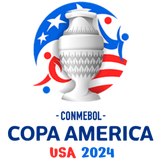
Circumstances of Messi's four-game Argentina ban open wide array of questions
BUENOS AIRES – On Thursday, Lionel Messi swore at an assistant referee. It was an extended string of expletives and was not particularly edifying, but nor was it particularly extraordinary, just the usual Argentine practice of arranging the words p**a, madre and co***a in increasingly baroque variations. On Tuesday, a little more than four hours before Argentina coach Edgardo Bauza had to submit his lineup for the World Cup qualifier at Bolivia, FIFA announced that Messi had been banned for four games.
This raises a number of issues, not least the timing of the announcement. It is true that the Argentine Football Association had been warned of the sanction in advance, which is how news of it leaked on Tuesday morning, but given the complaint was only made on Monday, that still gave Bauza only 24 hours to work out an entirely new game plan. That is neither fair nor conducive to good football. It’s arguably not particularly fair on Bolivia either, who presumably have been working out ways to stop Messi.
Then there’s the question of why the complaint was made in the first place. Football probably would benefit from a harder line being taken on the abuse of officials, but that has to be a transparent process. The referee’s initial report contained no mention of the incident and CONMEBOL, South America’s governing body, reportedly only acted after Chile, which had lost 1-0 to Argentina, sent the confederation a video of the tirade. Is this to be the future of the game, associations desperately hunting through tapes to find evidence that will get a rival player banned for key matches? Almost all players swear, many of them at referees: if this regulation is enacted uniformly, World Cup squads are going to have feature 100 players if the semifinalists are to be able to field a starting 11.
And if four games is the tariff for swearing at an official, what’s the penalty for, say, a reckless lunge that shatters an opponent’s shin such as Neil Taylor’s foul on Seamus Coleman during Wales’s 0-0 draw in Ireland on Friday? But is four games the tariff for swearing? Chile seemingly acted because it had two players banned in not dissimilar circumstances after the 3-0 defeat to Uruguay earlier in the qualifying campaign.
Jorge Valdivia was given a four-game ban for his post-match protests, while Eduardo Vargas was suspended for two matches for making obscene gestures at fans. Gary Medel and Valdivia (again) were both banned for four qualifiers last year after being red-carded in games for abusing referees.
Working out what word or gesture deserves what punishment seems like a nightmarishly complex process, particularly when it crosses linguistic and cultural boundaries. Does FIFA have some sort of obscenity ombudsman to decide just how offensive something is? There certainly needs to be more explanation if they’re to head off the allegations, widespread in Argentina, that Messi is being penalized extra harshly for having snubbed their "The Best" awards ceremony in January.

It may be that Argentina can appeal against the decision and have the ban reduced (there’s some suggestion that the AFA probably could have forced a stay until the next round of qualifiers but, perhaps wisely, decided that if Messi has to miss any game, one at altitude in Bolivia probably isn’t too damaging). But his absence will be felt.
Argentina sits third in the CONMEBOL table with the top four sides to qualify automatically and the fifth-place team facing a playoff against the best side from Oceania. It is, though, very tight, with second separated from sixth by three points. The victory over Chile was ugly and far from impressive, the passing dismal (on an awful pitch at El Monumental) and fluency absent. Bauza claimed he would give his side 10 out of 10 and insisted the game had been “closed” as soon as Messi had converted a 15th-minute penalty, but that ignored the fact that Chile had had a goal wrongly ruled out for offside and that Alexis Sanchez struck the bar.

Messi is pretty much the only thing that has been keeping Argentina moving forward. Of the six qualifiers he has played for the 2018 World Cup, Argentina has won five; of the seven he has not, it has won one. There is a Leo-dependence just as surely as there used to be a Diego-dependence.
And even playing in Bolivia will evoke dismal memories. Argentina lost there in 1969 on the last occasion it failed to qualify for a World Cup. It was hammered 6-1 there under Diego Maradona as it scraped qualification for the 2010 World Cup. Even four years ago, under Alejandro Sabella, it only managed a 1-1 draw.
Perhaps hardship, the sense the world is against Argentina, can galvanize team spirit. That is, after all, the way Bauza likes to work: he is a master with underdogs, as he showed in taking Liga de Quito and San Lorenzo to the Copa Libertadores. But the ban has made Argentina’s qualification campaign even more of a struggle than it already was and left FIFA with profound questions to answer.
